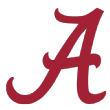
In the realm of Alabama football (and given the monster Nick Saban has created), going two entire years without winning a national championship is inexcusable.
Pardon the sarcasm.
But as we look back on a season unlike any other in college football, right there at the top of ESPN’s final 2020 power rankings — once again — is the Crimson Tide. Saban has won six national championships at Alabama, but only two came with unbeaten records — his first one in 2009 and the one the Crimson Tide put an exclamation mark on Monday night in Miami.
Texas A&M at No. 4 and Georgia at No. 7 joined Alabama as SEC teams in the top 10, and kudos to the non-Power 5 teams for representing this season. Cincinnati at No. 8, Coastal Carolina at No. 11, BYU at No. 12, Liberty at No. 13 and Louisiana at No. 14 all finished in the top 15.

Alabama quarterback Mac Jones didn’t hold back in the aftermath of the Crimson Tide’s 52-24 dismantling of Ohio State in the College Football Playoff National Championship Game. Jones said, “I think we’re the best team to ever play.” There will invariably be skeptics, but this Alabama team unquestionably put together one of the most impressive seasons in college football history. They went unbeaten playing an all-SEC schedule, routed Notre Dame and Ohio State in the playoff, scored more than 40 points in 11 of 13 games and won all but one game by 17 or more points — all during the middle of a pandemic. Nick Saban’s sixth national championship at Alabama will be one they remember for a long time at the Capstone.
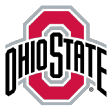
Ohio State led the charge in the Big Ten to even have a season this year, and while the Big Ten rules were indeed a moving target, the Buckeyes still demonstrated that they were one of the best teams in the country. They were no match for Alabama (who was this season?) in the national championship game and only played eight games. But they still won their fourth consecutive Big Ten championship and thumped Clemson 49-28 in the CFP semifinal game behind a spectacular and gutsy performance from quarterback Justin Fields. Not having two of their best defensive linemen against Alabama and running back Trey Sermon getting hurt on their first possession was a major blow to the Buckeyes, but there was no stopping the Tide this season.

Given what Dabo Swinney has accomplished at Clemson, it was almost surreal to not see the Tigers in the national championship game this season. They were routed 49-28 by Ohio State in the CFP semifinal, meaning this was only the second time in the past six years that the Tigers didn’t win the national title or play in the national title game. Swinney has built a program to last at Clemson, which had won 36 straight games against ACC opponents before losing in double overtime to Notre Dame (without Trevor Lawrence) on Nov. 7.
1:54
Check out the highlights of Trevor Lawrence’s impressive season at Clemson.

The Aggies would have loved to have seen the College Football Playoff expanded this season. Their only loss was to Alabama (52-24) the second week of the season. They reeled off eight straight victories from there, seven of those by double digits, but it wasn’t good enough to earn one of those four playoff spots. Texas A&M improved every week after the loss to Alabama and capped the season with a 41-27 victory over North Carolina in the Capital One Orange Bowl.

The Fighting Irish, competing this season in the ACC, were rolling right along with the longest winning streak among FBS teams. They had won 16 in a row dating back to the 2019 season, and then the bottom fell out in consecutive losses by a total of 41 points to Clemson in the ACC championship game and Alabama in the CFP semifinal. Notre Dame still beat Clemson earlier in the year, albeit with the Tigers playing without Trevor Lawrence, but the Irish did nothing to shake the stigma of being a bust on the biggest stages over the past decade.

The Sooners won their sixth straight Big 12 championship to complete a stirring turnaround after starting the season 1-2, including a 38-35 loss to Kansas State that saw OU blow a three-touchdown lead in the second half. That loss likely kept the Sooners from making their fifth College Football Playoff appearance in the past six years, but they finished the season on an eight-game winning streak, including a 55-20 rout of Florida in the Goodyear Cotton Bowl Classic.

Yes, the Dawgs lost to the most talented teams they faced this season, Alabama and Florida, but the 24-21 Chick-fil-A Peach Bowl victory over previously unbeaten Cincinnati capped a strong finish for Kirby Smart’s club. The win over the Bearcats was especially impressive because Georgia was missing several key starters. Who knows what would have happened had JT Daniels been Georgia’s starting quarterback all season? The good news for the Dawgs is that he’s returning in 2021.

The Bearcats were miffed that they didn’t receive any serious consideration for the College Football Playoff despite winning all nine of their regular-season games and an AAC championship. The last-second 24-21 loss to Georgia (on a 53-yard field goal) in the Chick-fil-A Peach Bowl was disappointing, but Cincinnati proved it could play with the “big boys.” The combination of multidimensional quarterback Desmond Ridder and a stifling defense warrants the Bearcats’ top-10 finish.
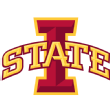
After an inauspicious start to the season and a 31-14 home loss to Louisiana, Iowa State rebounded nicely and proved to be one of the strongest teams in the country at season’s end. The Cyclones dropped close games to Oklahoma State and then Oklahoma in the Big 12 championship game before defeating Pac-12 champion Oregon in the Fiesta Bowl. Iowa State fans can’t wait to get another dose of the Brock Purdy–Breece Hall combination next season.

What a bounce-back season for Pat Fitzgerald’s Wildcats, who won six Big Ten games and the Big Ten’s West Division championship. That’s a year removed from winning just one Big Ten game in 2019. Northwestern won its first five games and was trying to go 6-0 in the Big Ten for the first time since 1995, but was upset by Michigan State. The Wildcats played Ohio State tough in the Big Ten championship game before losing 22-10 and then put an impressive bow on the season with a 35-19 win over Auburn in the Vrbo Citrus Bowl.

The Chanticleers were easily one of the best stories in college football this season. In only their fourth season at the FBS level, the Chants were a 37-34 overtime loss (to Liberty in the FBC Mortgage Cure Bowl) away from an unbeaten season. Jamey Chadwell earned AP National Coach of the Year honors, as Coastal Carolina went from five wins in 2019 to a school-record 11 wins as an FBS program this season. The Chants’ 22-17 win over BYU on Dec. 5, in a game put together in a matter of days, was perhaps the game of the year.

The Cougars, who had to build their schedule from scratch after their Power 5 opponents shifted to league games only, get bonus points for having the gumption to travel all the way across the country to play Coastal Carolina on a few days’ notice. Quarterback Zach Wilson and the BYU offense put up monster numbers. The Cougars scored more than 40 points in nine of their 12 games, capped by a 49-23 beatdown of UCF in the RoofClaim.com Boca Raton Bowl.

In just two seasons, Hugh Freeze has led Liberty to unprecedented heights. The Flames, in their second full season at the FBS level, started out a program-best 8-0 before losing to North Carolina State 15-14 when a last-second field goal attempt was blocked. Quarterback Malik Willis passed for 2,260 yards, rushed for 944 yards and accounted for 34 touchdowns after transferring from Auburn. The Flames capped their record-setting season with a 37-34 overtime victory against previously unbeaten Coastal Carolina in the FBC Mortgage Cure Bowl.

One of the biggest wins for the Ragin’ Cajuns came off the field and being able to hold onto coach Billy Napier, who was courted by a number of Power 5 schools. He guided Louisiana to its second consecutive season of 10 or more wins, including a second straight bowl victory. And remember this: The Ragin’ Cajuns didn’t just scrape by Iowa State to open the season, either; they beat the Cyclones by 17 points on their home field.

Few teams were playing better to end the season than the Hawkeyes, who won six straight games (all but one by double digits) before having their final two games canceled because of COVID-19 issues. Michigan had to cancel, and then Iowa’s TransPerfect Music City Bowl matchup with Missouri was also nixed. Even with the season ending sooner than the Hawkeyes would have liked, they saved their best for last after opening the season with consecutive losses to Purdue and Northwestern by a total of five points.

There’s no disputing the job Tom Allen has done at Indiana, which ended long losing streaks to Michigan, Penn State and Wisconsin this season. The Hoosiers’ only regular-season loss was to Ohio State on the road, a 42-35 decision that saw Indiana rally from a 35-7 deficit to make it a game. The season ended with a whimper as back-to-back games with Purdue were canceled, and Indiana then fell 26-20 to Ole Miss in the Outback Bowl.
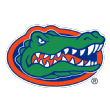
In a college football season that was strange all across the sport because of COVID-19 issues, it was especially strange for the Gators. They were super explosive on offense and scored more than 30 points in 11 of their 12 games. They beat Georgia and played Alabama down to the final minutes in the SEC championship game, but had trouble stopping teams on defense all season and lost their last three games, including a 55-20 setback to Oklahoma in the Goodyear Cotton Bowl Classic. The Gators had most of their key playmakers on offense sit out the bowl game.

In a season that ended with head coach Tom Herman’s ouster, the truth is that Texas was a lot closer than people may think to being in a position to play for a title. The Longhorns’ three losses were by a combined 13 points, and one of those was to Oklahoma 53-45 in four overtimes. Texas ended up winning five of its last six games, including a 55-23 victory over Colorado in the Valero Alamo Bowl, but it wasn’t enough to save Herman’s job after four seasons in Austin.

The Cowboys started off the season 4-0 and beat Iowa State along the way. But then the bottom fell out, as they lost three of their next five games. For much of the season, Oklahoma State was improved on defense from past years. The Cowboys held six of their opponents to 21 or fewer points, but gave up 41 points in each of their losses to Oklahoma and Texas. Oklahoma State closed the season with back-to-back wins behind a pair of 300-yard passing games from Spencer Sanders, who threw four touchdown passes in the 37-34 victory over Miami in the Cheez-It Bowl.

The Cardinals, in Mike Neu’s fifth season, were one of the country’s hottest teams to end the year. They won seven in a row after losing the season opener to Miami (Ohio) and capped things by beating previously unbeaten Buffalo to win their first Mid-American Conference championship since 1996 and then routed previously unbeaten San Jose State, the Mountain West Conference champion, in the Offerpad Arizona Bowl.
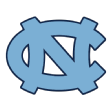
The Tar Heels had one of the most potent running games in the country this season with the dynamic duo of Michael Carter and Javonte Williams, both of whom rushed for more than 1,000 yards. But they both missed the Capital One Orange Bowl, a 41-27 loss to Texas A&M. With Sam Howell returning at quarterback, the future is bright for a talented UNC team. But it’s difficult to rank the Tar Heels any higher this season because of their four losses and dearth of quality wins.

Junior running back Jaret Patterson was sensational this season for the Bulls and rushed for 1,072 yards and 19 touchdowns in only six games. But Buffalo, after falling to Ball State 38-28 in the Mid-American Conference championship game, showed that it was much more than just a one-man team. The Bulls beat Marshall 17-10 in the Camellia Bowl without Patterson, who was sidelined with a knee injury.
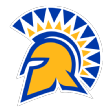
The ending wasn’t what San Jose State was hoping for, but it was still a historic season for the Spartans, who won the first Mountain West Conference championship in program history. The loss to Ball State in the Offerpad Arizona Bowl was only a blip. The Spartans, picked to finish near the bottom of the conference, were the essence of perseverance. They had to travel several hundred miles to Humboldt State just to prepare for the season because of local COVID-19 restrictions and then set up base in Las Vegas later in the year because of more COVID-19 restrictions.

The Trojans are the Pac-12’s lone representative in the final power rankings, and their close to the season was a bit hollow. After winning all five of its regular-season games, USC lost 31-24 to Oregon in the Pac-12 championship game, an Oregon team that had not won a game in nearly a month and only got into the Pac-12 title game because Washington had to bow out because of COVID-19 issues.

Two years ago, it was the offense that Miami couldn’t get right, and the Hurricanes seemed to rectify that this season with quarterback D’Eriq King having a big year. But after starting out 8-1, with the only loss coming to Clemson, the Hurricanes lost their last two games and gave up 99 points in the process. Making the 37-34 Cheez-It Bowl loss to Oklahoma State even worse was King tearing the ACL in his right knee. King said he does plan to return to Miami next season.
Source link



